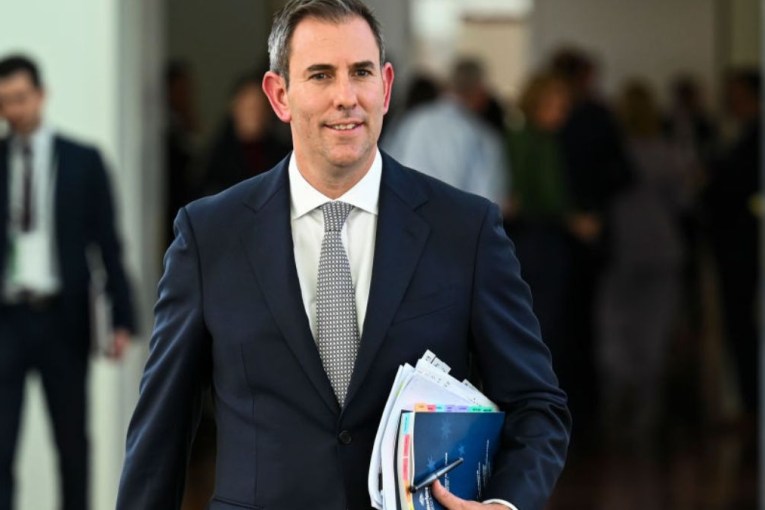RBA governor warns wage rises ‘on the high side’ and impacting inflation

Reserve Bank governor Michele Bullock has warned recent wage rises are “on the high side” and contributing to higher costs, as the central bank flags a possible 14th rate hike.
In remarks to an ASIC forum on Tuesday, Bullock discussed the problem of inflation, which she said remained a “crucial challenge over the next one to two years”.
In her most expansive marks yet on wages, Bullock said one of the contributors to inflation was wages rising without increased productivity.
Bullock said productivity in Australia had not improved in “a number of years”, which meant wages growth – which hit a 13-year record of about 4 in the September quarter – was too much.
Bullock said such wage rises were OK in the “normal context” of productivity growth.
But without it, “they’re on the high side and they’re going to contribute to rises in costs”, she said while appearing on a panel at the ASIC annual forum.
“We know that unit labour costs, as measured in the last few years, have been rising quite substantially – 6, 7, 8 per cent – depending how you might measure it.
“That’s not helpful for the inflation thing.”
High labour costs and weak productivity were also noted in minutes from the RBA’s last meeting on Melbourne Cup Day, which were released on Tuesday.
The minutes also flagged the potential for another rate hike, with the central bank’s board “resolute in its determination to return inflation to target and will do what is necessary to achieve that outcome”.
Bullock also told the forum there was a perception the latest bout of high inflation was driven only by supply shocks, which had triggered price growth in things such as petrol, energy and rents.
“But actually, there’s an underlying demand component to it as well, and that’s what the central banks are trying to get on top of,” she said.
Central banks typically “look through” supply shocks and let them decline naturally.
She said resolving supply side issues were showing up in headline inflation that “has come down quite quickly overseas and has also come down in Australia”.
“But if there’s this underlying demand component to it as well, that is actually something that central banks can do something about,” she said.
The Reserve board opted to lift interest rates at the November board meeting by another 25 basis points.
The increase was the 13th in the hiking cycle prompted by fast-rising consumer prices, with inflation proving stubborn as highlighted in the September quarter consumer price index.
The central bank has also kept the door open to more tightening, if needed.
Consumers have been reining in their spending, as highlighted in Commonwealth Bank payments data released on Tuesday.
Young people are contracting their spending the most – reflecting higher rents and rising mortgage repayments – with retirees still found to be spending more than prices are increasing.
Bullock also walked through a couple of now familiar risks to the inflation outlook, including Australia’s lacklustre productivity growth and how it could feed through to higher unit labour costs.
Geopolitical fragmentation was highlighted again as a potential driver of more supply shocks, which are harder to ignore when they hit one after the other.
“If you keep getting them, there comes a point where everyone just expects inflation to remain high and if inflation expectations adjust, then that’s a problem,” she said.
Bullock took the opportunity to welcome the “fabulous performance” of the labour market, with unemployment levels hovering well below long run averages.
She remained confident gains in the jobs market, including better employment opportunities for young people and women, could be kept as the battle against high inflation raged on.
“We’ve made great gains, and I’m really confident that we can keep them,” she said.
Consumer are still nervous about the state of the economy, based on surveying by ANZ and Roy Morgan.
The consumer sentiment index has been stuck deep in negative territory though it did improve a modest 0.4 points last week.
Those paying off a home loan have been the most worried about the economy and their finances, with renters and outright home owners experiencing shallower declines.
-with AAP








